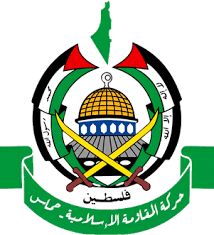News Report: Hamas Gives "Initial" Approval To Plan For Gaza Fighting Pause
Courtesy: AFP
Hamas has given its "initial" approval to a planned humanitarian pause in its war with Israel and a hostage-prisoner exchange, Qatar said Thursday, as fighting raged in the Gaza Strip.
However, a source close to Hamas told AFP there was no agreement yet on the proposal.
"The meeting in Paris succeeded in consolidating the proposals...," Qatar's foreign ministry spokesman Majed al-Ansari said of talks Qatari, US, Israeli and Egyptian officials had on Sunday.
"That proposal has been approved by the Israeli side and now we have an initial positive confirmation from the Hamas' side."
Mediators pushed ahead with peace efforts as fighting raged in Gaza and as Qatar-based Hamas leader Ismail Haniyeh was expected in Cairo for talks on Thursday or Friday.
Ansari said there were hopes of "good news" about a new pause in the fighting "in the next couple of weeks".
But the source close to Hamas said Thursday: "There is no agreement on the framework of the agreement yet -- the factions have important observations -- and the Qatari statement is rushed and not true."
Hamas has been reviewing a proposal for a six-week pause and a hostage-prisoner exchange, a Hamas source had told AFP after the Paris meeting.
Israel's military said Thursday troops had "eliminated dozens of terrorists" over the past day and destroyed a long-range missile launcher in the embattled southern city of Khan Yunis.
According to the health ministry in Hamas-run Gaza, 119 people were killed in strikes overnight.
The UN also reported heavy bombardment across Gaza, particularly in Khan Yunis, and said 184,000 more Palestinians from the city had registered for humanitarian assistance.
More than 30,000 displaced people in schools around the city's Nasser hospital face a lack of food, water, medicine and baby formula, health ministry spokesman Ashraf al-Qudra said.
"We have nothing to eat, nothing to drink... we have nothing here but fear," a woman at Al-Shifa hospital in Gaza City told AFPTV. "People are scared. We demand a ceasefire."
Three-stage Plan:
A Hamas source had told AFP the three-stage plan would start with an initial six-week halt to the fighting that would see more aid deliveries into Gaza.
Only "women, children and sick men over 60" held by militants would be freed during that stage in exchange for Palestinian prisoners in Israel, the source said, requesting anonymity because of the sensitivity of the talks.
There would also be "negotiations around the withdrawal of Israeli forces", with possible additional phases involving more hostage-prisoner exchanges.
The war was triggered by Hamas's October 7 attack on Israel, which resulted in the deaths of around 1,160 people, mostly civilians, according to an AFP tally based on official figures.
Militants also seized about 250 hostages. Israel says 132 remain in Gaza including at least 27 people believed to have been killed.
After the deadliest attack in its history, Israel launched a withering offensive that has killed at least 27,019 people in Gaza, mostly women and children, according to the health ministry in the Hamas-run territory.
Violence has also flared in the occupied West Bank, with more than 370 people killed by Israeli troops and settlers since October 7.
On Thursday, Israeli Prime Minister Benjamin Netanyahu said there was "no room" for US sanctions on settlers in the West Bank, after Washington imposed punitive measures on a handful of Jewish settlers there.
Aid Access:
Netanyahu has ruled out withdrawing troops from Gaza and has repeatedly vowed to destroy Hamas, which the United States and European Union consider a "terrorist" group.
He has also opposed releasing "thousands" of Palestinian prisoners as part of any deal.
With scores of Israeli hostages still in Gaza, there has been mounting criticism of Netanyahu's government that has triggered street protests and calls for an early election.
For people in Gaza, access to aid has been further hampered by a controversy surrounding the UN agency for Palestinian refugees, UNRWA, after Israel accused several of its staff of involvement in the Hamas attack.
The claims saw several donor countries, led by the United States, freeze funding for the agency.
UN chief Antonio Guterres said he had "met with donors to listen to their concerns and to outline the steps we are taking".
Netanyahu said UNRWA had been "totally infiltrated" by Hamas, and called for other agencies to replace it.
UNRWA chief Philippe Lazzarini said that "if the funding remains suspended, we will most likely be forced to shut down our operations by end of February not only in Gaza but also across the region".
Regional Tensions:
The war's impact has been felt widely, with violence involving Iran-backed allies of Hamas across the Middle East surging since October and drawing in US forces among others.
The White House blamed the Islamic Resistance in Iraq, a loose alliance of pro-Iran armed groups, for a drone attack that killed three US soldiers at a base in Jordan.
Yemen's Huthi rebels, part of the "axis of resistance" of Iran-backed groups, have been harassing Red Sea shipping for months, triggering US and British reprisals.
A missile fired from Yemen hit a merchant vessel, maritime security firm Ambrey said Thursday, after the Huthis claimed an attack on a US ship.
And an explosion was reported near a ship off the Yemeni coast, British maritime security agency UKMTO said, adding that both vessel and crew are safe.
The US military said Wednesday a destroyer shot down three Iranian drones and an anti-ship missile fired by the Huthis. It also said it had targeted 10 attack drones and a ground control station in Yemen.
British Foreign Secretary David Cameron met Lebanese Prime Minister Najib Mikati in Beirut on Thursday to discuss defusing tensions on the Lebanon-Israel border as the Israeli army reported new exchanges of fire.
Since October 7, the border has seen near-daily exchanges between Israel and Lebanese militant group Hezbollah, a Hamas ally.



